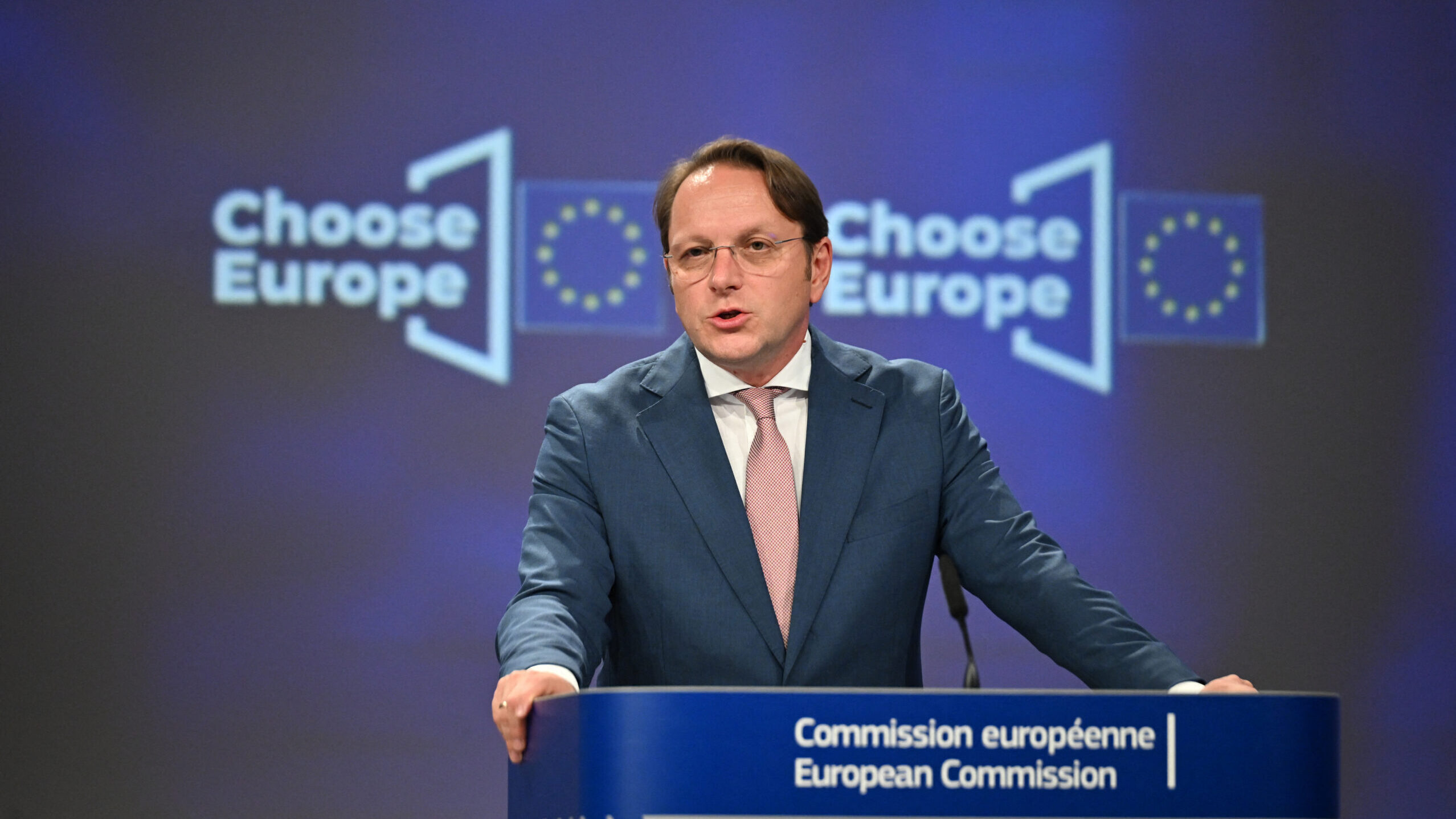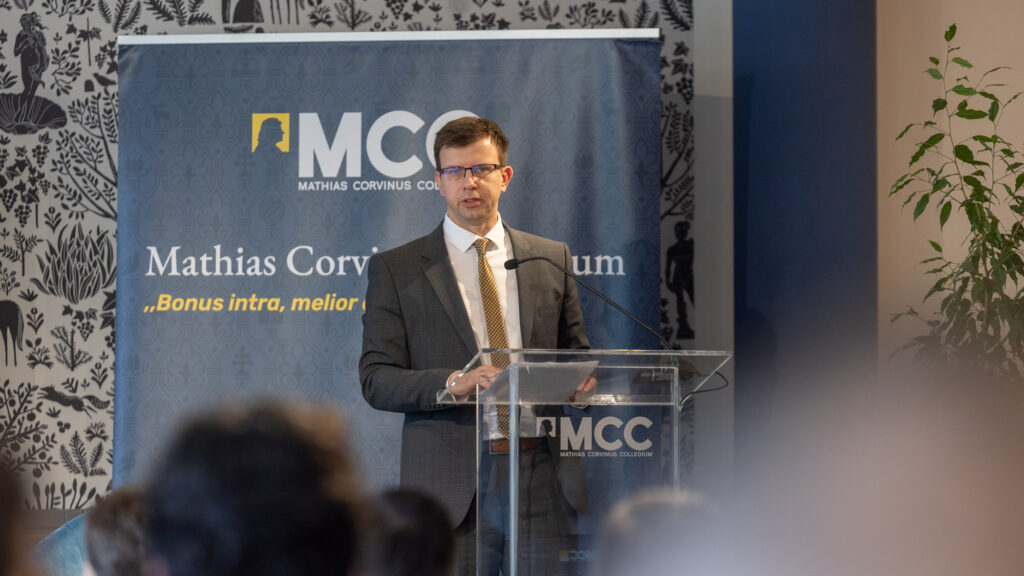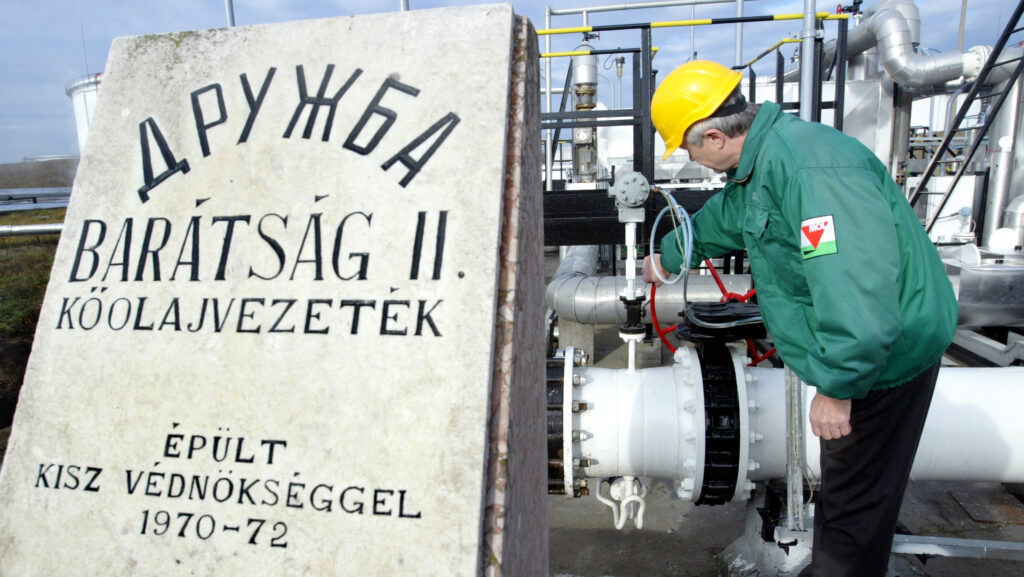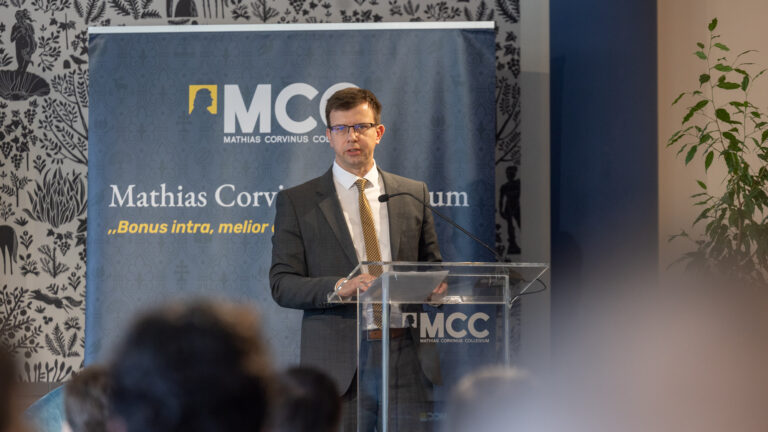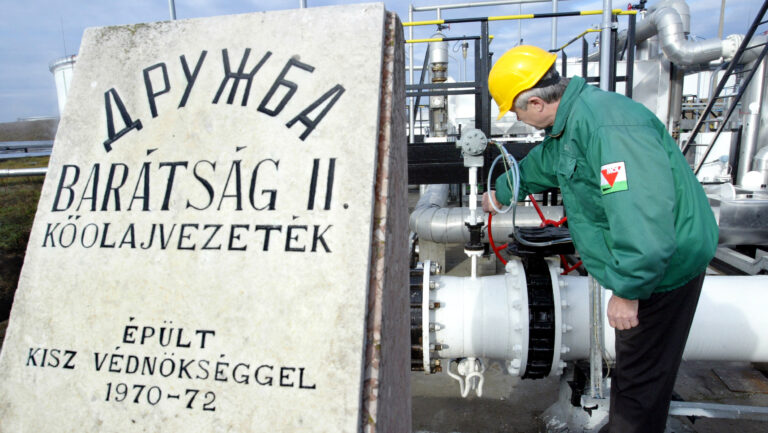Leader of the liberal-progressive Renew Europe group Valérie Hayer has demanded that European Commission President Ursula von der Leyen use her ‘power to act’ in response to allegations of a Hungarian spy network in Brussels operating between 2015 and 2017 under the auspices of Hungary’s Permanent Representation to the European Union, which was headed at the time by Commissioner Olivér Várhelyi.
Speaking to POLITICO Brussels Playbook, Hayer—a close ally of French President Emmanuel Macron, who is currently facing the deepest political crisis of his presidency—said that von der Leyen had ‘both the responsibility and the power to act’ on the reports concerning the alleged network and Várhelyi’s role in it. Várhelyi currently serves as the European Commissioner for Health and Animal Welfare. ‘From the very beginning, Renew Europe warned against Mr Várhelyi’s nomination and his close ties to Viktor Orbán’s government,’ Hayer claimed. ‘His record has consistently shown loyalty to pro-Orbán, not European interests.’
‘The latest findings only deepen the concerns…These allegations are extremely serious and must be fully investigated,’ she added.
As Hungarian Conservative reported last week, the accusations stem from reports by Hungarian outlet Direkt36, in collaboration with Belgian daily De Tijd and Germany’s Paper Trail Media. The publications describe an alleged spy network that operated between 2015 and 2017 within Hungary’s Permanent Representation to the EU in Brussels, with the goal of collecting information on areas of conflict between the European Commission and the Hungarian government at the time—such as press freedom, the rule of law, and judicial independence.
According to the reports, officers of Hungary’s Intelligence Office (IO) approached Hungarian officials working for the Commission with the aim of gathering information, recruiting contacts, and securing involvement. The alleged network was compromised in 2017, when its methods reportedly became too aggressive and careless.
However, several sources quoted by the outlets downplay the significance of the alleged operation, contradicting Hayer’s characterization of the case as ‘extremely serious’. The reports appear more likely to be part of a broader smear campaign against Hungary ahead of the 2026 parliamentary elections—mirroring the European Commission’s pressure campaign on Poland in 2023, which ultimately helped Donald Tusk and his allies return to power.
Zoltan Kovacs on X (formerly Twitter): "‼️ The allegation published today by @direkt36 is nothing more than a smear campaign against Hungary - orchestrated by foreign intelligence services, with the involvement (among others) of Hungarian journalist @panyiszabolcs. They cannot accept that Hungary stands for peace, so... pic.twitter.com/DZ6uxjcq1g / X"
‼️ The allegation published today by @direkt36 is nothing more than a smear campaign against Hungary - orchestrated by foreign intelligence services, with the involvement (among others) of Hungarian journalist @panyiszabolcs. They cannot accept that Hungary stands for peace, so... pic.twitter.com/DZ6uxjcq1g
Commissioner Várhelyi told von der Leyen that he was ‘not aware’ of any such efforts by Prime Minister Viktor Orbán’s government to recruit spies in Brussels, according to a Commission spokesperson responding to POLITICO Brussels’s inquiry. Hungarian State Secretary Zoltán Kovács dismissed the reports in a post on X as a ‘smear campaign against Hungary’, orchestrated by ‘foreign intelligence services’. Hungarian Minister of Foreign Affairs and Trade Péter Szijjártó also rejected the claims, telling Reuters that he was unaware of ‘any procedure corresponding to the claims made by these so-called investigative portals.’
President of the Renouveau & Démocratie staff union at the Commission Cristiano Sebastiani stated, talking to POLITICO Brussels, that while Várhelyi should be presumed innocent, the institution’s leadership had a responsibility to investigate the allegations ‘properly and fast’ to dispel any suspicion ‘as soon as possible’, given the risk of reputational damage. ‘We cannot have this kind of suspicion,’ Sebastiani said.
Related articles:

